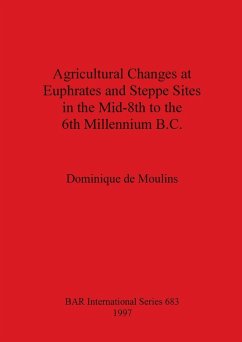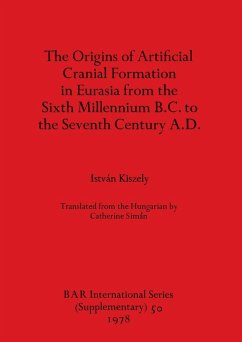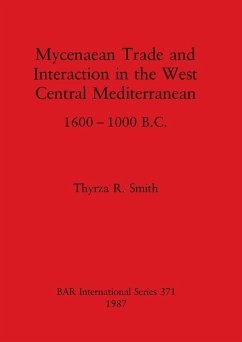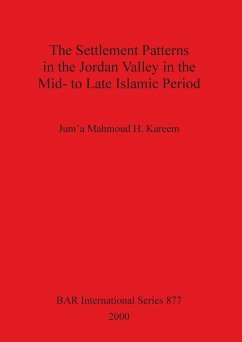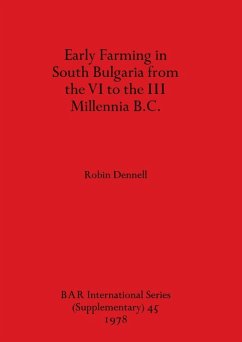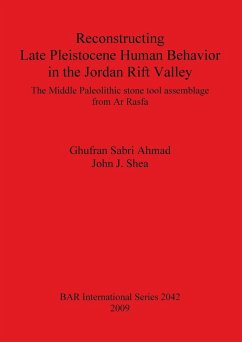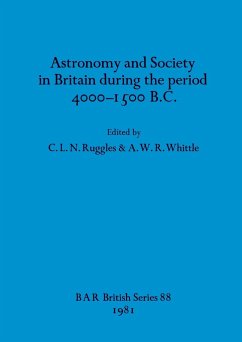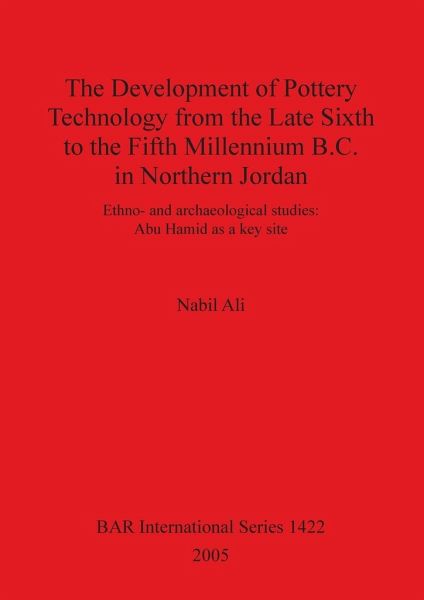
The Development of Pottery Technology from the Late Sixth to the Fifth Millennium B.C. in Northern Jordan
Ethno- and archaeological studies: Abu Hamid as a key site
Versandkostenfrei!
Versandfertig in 1-2 Wochen
59,99 €
inkl. MwSt.

PAYBACK Punkte
30 °P sammeln!
This study is divided into two main parts. Part one presents the ethnoarchaeological study that has been conducted on (late-Sixth to Fifth Millennium BC) pottery production in northern Jordan (the Ajlun Mountain area). It includes the location and environmental setting of the study area, the context of pottery production with reference to potters’ socio-economical contexts, and their identity. It also includes the context of pottery production and a description of the technological traditions that have been identified among the potters. Chapters 4 and 5 have been devoted to measuring and exp...
This study is divided into two main parts. Part one presents the ethnoarchaeological study that has been conducted on (late-Sixth to Fifth Millennium BC) pottery production in northern Jordan (the Ajlun Mountain area). It includes the location and environmental setting of the study area, the context of pottery production with reference to potters’ socio-economical contexts, and their identity. It also includes the context of pottery production and a description of the technological traditions that have been identified among the potters. Chapters 4 and 5 have been devoted to measuring and explaining the causes of technological similarities as well as differences in the potters’ out-put. Part 2 presents the archaeological study. It includes a description of the site of Abu Hamid and its environmental setting. Moreover, it presents the chronology and the sequence of occupation at the site, as well as the spatial and temporal contexts of the sampled pottery sherds. Further, it presents morphological and metric descriptions of the pottery assemblages. Chapters 8 and 9 are devoted to the identification of archaeological pottery forming techniques and the measuring of the technical variations among them. The last chapter presents the explanations of these technical variations.





